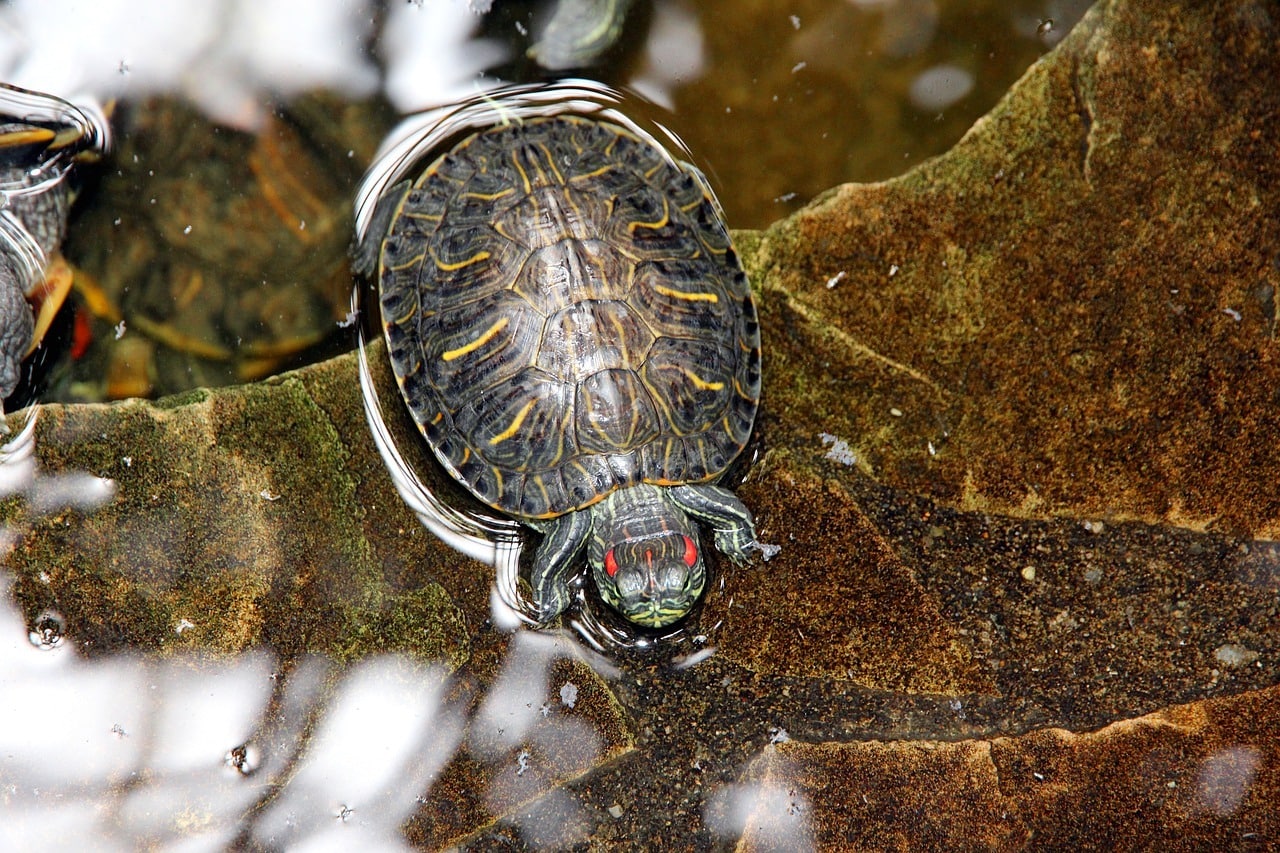
Click to Skip Ahead
While turtles may have stoic faces and may not be very outwardly expressive, they can still feel a range of emotions. Though their ability to feel affection is contested, your turtle can certainly form a strong bond and attachment to you. Turtles may not show affection as humans do, but they can let you know that they’re comfortable around you. Here’s what we know about how turtles’ feelings work and how they can show that they like you.
A Turtle’s Range of Emotions
Turtles can feel emotions that help them with their survival. For example, they can feel instinctual fear to help protect them from natural predators. They can also feel aggressive when they must defend their territory.
When it comes to feeling affection, it’s unclear if turtles are capable of feeling this emotion. As pet owners that love their pets, we can often transfer our human emotions to our pets. So, it can seem like our turtles are returning the same love that we show them.
However, this doesn’t mean that turtles can’t form attachments. Turtles are capable of socializing and communicating with other turtles. So, if you have a basic understanding of turtle behavior, you can determine if your turtle feels comfortable around you, which signifies that your turtle likes being with you.

Signs Your Turtle Is Comfortable Around You
While turtles can be vocal, you’ll most likely understand how your turtle is feeling through their body language. A content and relaxed turtle is out and about and will explore their enclosure. They may hide in a secluded place when they’re resting, but they won’t spend the majority of their waking hours hidden from view if they feel safe.
Over time, turtles can recognize their owners. So, if your turtle doesn’t hide from you when you’re around, it’s a good sign that they’re comfortable with you. You can help your turtle learn to recognize you more quickly if you’re the one who consistently feeds them. This helps them to establish a connection that you are their food supply, which will help them to remember you.
Many turtle owners also report that their turtles will watch them, and their heads will follow them if they’re walking around the room. Some turtles may splash and appear excited if they notice you near them. This can indicate that they’re excited to see you and are expecting food or a treat.
While not all turtles enjoy being held, your turtle can tolerate being held for a short period of time. If your turtle appears stressed or tries to run away when you’re nearby, they haven’t established a positive association with you just yet. However, with some time and patience, you can help your turtle feel more comfortable and relaxed. It’s also important to keep in mind that some turtles simply won’t enjoy being held. If this is the case, it’s best to respect your turtle’s boundaries and refrain from holding them unless it’s absolutely necessary.

A Healthy Turtle Is a Happy Turtle
One of the best ways to know that your turtle is happy and content is through their health. A turtle’s health will deteriorate if they’re under constant stress. Creating a safe and cozy enclosure for your turtle and feeding them a nutritious diet can greatly contribute to their well-being and contentment.
So, one of the most effective ways to help your turtle feel safe and show signs of comfort when you’re nearby is to maintain a clean and engaging living space and feed them a healthy diet. It’s also helpful to look out for any signs of distress in your turtle. Turtles that feel stressed or unwell often withdraw their head and limbs into their shells. They’ll show general disinterest in normal activities, such as swimming and eating. They can also hide in one spot rather than exploring various parts of their enclosure.
If you notice any signs of distress in your turtle, make sure to identify the cause right away. It can be due to improper temperature levels, nutrition, or even having their enclosure situated in a loud place with a lot of foot traffic. It’s recommended to consult your veterinarian to determine what’s causing your turtle to feel stressed and develop an effective treatment plan to help your turtle feel healthy, safe, and comfortable.
Conclusion
Overall, turtles may not show affection in ways that humans do, but they can show signs that they are comfortable being around you. Ensuring that your turtle is healthy and living in adequate living spaces will eventually help your turtle feel content and safe around you. If your turtle ever shows signs of distress or illness, it’s best to contact your veterinarian to help your turtle feel better and comfortable again.
Featured Image Credit: Patti Black, Unsplash








